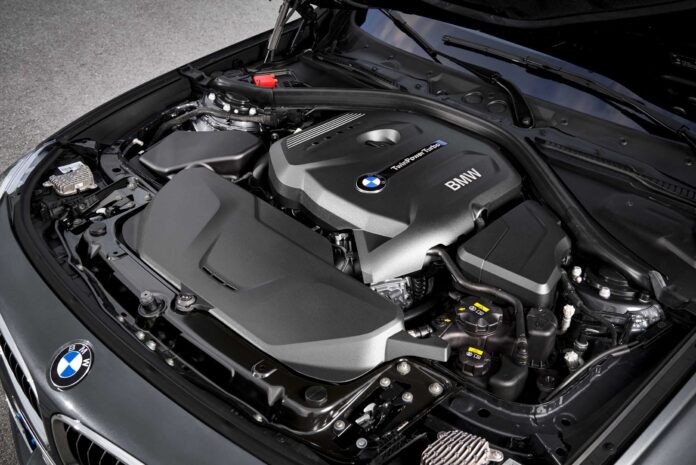Are you concerned about the reliability of your BMW B48 engine? You’re not alone. This turbocharged engine, while known for its performance, does come with its own set of potential issues, including oil filter housing failures and coolant leaks. Gaining insight into these common problems can help you maintain your engine in top condition. Read on to learn about these challenges and how to effectively manage them. Find out if the B48 engine is a dependable choice for long-term use.
Overview of the BMW B48 Engine
The BMW B48 engine is a 2.0-liter turbocharged four-cylinder engine that has become a key component in various BMW models. Designed to enhance both power and fuel efficiency, this engine builds upon the foundation set by its predecessor, the N20. In this section, we will explore its features, examine how it compares to older models, and identify which BMW vehicles come equipped with this engine.
Key Specifications of the B48 Engine
The B48 engine is engineered to balance power and efficiency seamlessly. It features a 2.0-liter displacement, a turbocharger, and an output ranging from 190 to 302 horsepower depending on the specific model. The incorporation of Double VANOS technology ensures optimal valve timing, contributing to smoother power delivery and increased fuel economy.
Additionally, the engine employs direct fuel injection, which enhances fuel efficiency by precisely controlling fuel distribution. The torque range, typically between 280 and 400 Nm, allows for rapid acceleration and a dynamic driving experience. These characteristics make the B48 an attractive option for those seeking both performance and reliability.
How It Compares to Previous BMW Engines
Compared to the earlier N20 engine, the B48 introduces several noteworthy upgrades. One of the most significant improvements is the resolution of the timing chain reliability issues that plagued the N20. The B48 also features a closed-deck engine block design, which enhances its durability and power handling capabilities.
With improved cooling efficiency and an advanced fuel injection system, the B48 outperforms its predecessor in both reliability and efficiency. While it shares some design elements with the six-cylinder B58 engine, the B48 remains a distinct powertrain tailored for those who prioritize a balance between compactness and performance.
Which BMW Models Use the B48 Engine?
The B48 engine is utilized in numerous BMW models, making it a widely adopted powertrain. It can be found in vehicles such as the BMW 3 Series, BMW X1, and BMW 5 Series. These models benefit from the engine’s excellent balance of power and efficiency, making them suitable for both daily commuting and spirited driving.
The engine’s versatility allows it to be used in a variety of body styles, including sedans, SUVs, and coupes. This widespread implementation highlights the B48’s crucial role in BMW’s lineup and underscores its reputation as a reliable and efficient engine.
Common Issues with the BMW B48 Engine
Despite its engineering advancements, the B48 engine is not without faults. Several common problems can arise, and being aware of them can help you take proactive measures to keep your vehicle in top condition. Below, we explore some of the most frequently reported issues.
Problems with the Timing Chain
The timing chain plays a vital role in keeping the engine’s camshaft and crankshaft synchronized. Over time, it may stretch or wear out, leading to symptoms such as rattling noises and inconsistent engine performance. If ignored, a faulty timing chain can result in severe engine damage.
To prevent costly repairs, regular inspections and timely replacements are highly recommended. If you notice unusual noises or a decrease in performance, consult a professional mechanic immediately.
Water Pump Malfunctions
The water pump is responsible for maintaining optimal engine temperature. When it fails, the engine may overheat, leading to serious mechanical issues. Warning signs include coolant leaks, excessive engine heat, and odd noises coming from the pump area.
Addressing a malfunctioning water pump early can prevent costly engine damage. Regularly checking coolant levels and watching for leaks can help you spot this issue before it worsens.
Best Practices for Maintaining a BMW B48 Engine
Proper maintenance is key to ensuring the longevity and efficiency of your BMW B48 engine. Following these essential maintenance steps can help keep your vehicle running at its best.
Frequent Oil Changes
Regular oil changes are crucial for engine health. Engine oil lubricates components, reduces wear and tear, and helps maintain performance. It’s advisable to replace the oil every 5,000 to 7,000 miles using BMW-recommended synthetic oil.
Monitoring Coolant Levels
Ensuring proper coolant levels helps prevent overheating and potential engine damage. Check coolant levels regularly and use only BMW-approved coolant to maintain efficiency.
By adhering to these maintenance practices, you can significantly extend the life of your BMW B48 engine and enjoy a reliable driving experience.
Fuel Injection System Inspection and Maintenance
The B48 engine’s fuel injection system is designed to deliver fuel efficiently to the combustion chamber. However, over time, fuel injectors may become clogged, leading to decreased performance and fuel efficiency. Regular inspection and cleaning are essential to maintain optimal engine operation.
Using fuel additives can help keep injectors clean and functioning properly. If you notice rough idling, reduced power, or increased fuel consumption, these may be signs of an issue with the injection system. Addressing these symptoms promptly can prevent more severe problems in the future. Always ensure that maintenance is carried out by a certified technician with expertise in direct injection engines.

